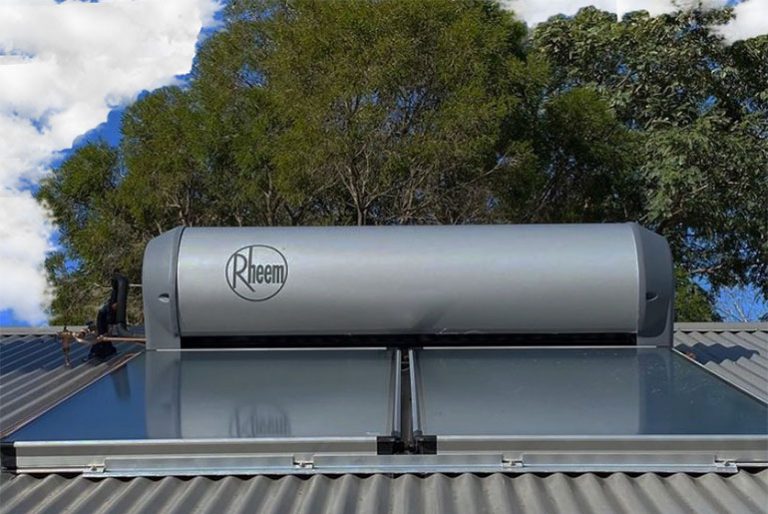Australia has the world’s highest solar radiation at 58 million petajoules per year, which is 10,000 times higher than its total energy consumption.1
With such abundant sunshine, a solar hot water system can benefit you and your family with energy savings for years after installation. Installing clean, renewable solar hot water is one of the simplest ways to reduce your energy consumption, as well as carbon emissions. As a result, you can save more on your energy bills, and at the same time contribute to a sustainable future.
However, one common question regarding solar hot water systems is whether they work effectively when it’s not sunny, i.e. rainy or cloudy days. In this article, we will explore:
- How solar hot water works on such days to ensure you still get a steady, hot and strong flow of hot water; and
- Three key benefits of choosing solar hot water.
How do solar hot water systems work on rainy or cloudy days?
A Rheem solar hot water system is installed with a gas or electric boost function, which will kick in on a day with bad weather or when the sun is hiding behind clouds.
In a gas-boosted system, water leaves the tank and passes to the gas booster. In an electric-boosted system, the electric element, which is in the tank, kicks in. In both systems, the water is heated until it reaches the preset temperature, which is then delivered to your tap or shower outlet.
Below is an illustration diagram of how gas-boosted solar works:
Just as no two families are alike, Rheem has different systems designed for different needs. For more information on all things solar, contact Rheem today.
Why solar hot water?
By making the switch to solar hot water, you and your family can enjoy great benefits, namely
1. Savings on your hot water energy use
Hot water typically makes up around 25% of a household’s energy use in Australia.2 So, if you use less energy to produce hot water, it can translate to significant savings.
In fact, by replacing an electric water heater with solar can reduce your energy consumption by up to 65%.3 Also, the solar incentives from the Federal Government, known as Small-Scale Technology Certificates (STCs), can reduce your initial investment in making the switch to solar.
2. Reducing your carbon emissions
By using a natural resource, i.e. the sun, to heat water, you reduce your carbon emissions. As a result, you are contributing to a more sustainable future.
You could save up 1.7 to 2.6 tonnes of carbon emissions per year with solar hot water. Also, compared to solar power panels, a solar hot water system uses collectors that are more efficient per square metre as they typically take up less space on your roof.
Alternatively, you can choose to have a split solar hot water system, where the tank is located on the ground rather than your roof.
3. Potentially increasing the value of your home
Did you know that solar hot water could potentially increase the value of your home? According to research from realestate.com.au and Origin Energy, 78% of Australians surveyed said that a solar hot water system would add value to a home.⁴
——
Looking to make the switch to solar hot water or find out more information? Contact Rheem today.
Disclaimers:
2 – https://www.energy.gov.au/households/energy-basics-householders as at 13/05/2020.
3 – Energy reduction of up to 60% based on Australian Government Approved TRNSYS simulation modelling and apply when replacing an electric water heater with a Rheem solar water heater in zone 3.
4 – Study: 85% of Aussies say solar panels boost property prices https://www.realestate.com.au/news/85-of-aussies-say-solar-panels-boost-property-prices/




Comments are closed.